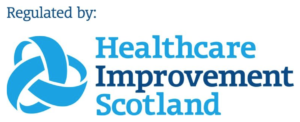When planning your health for international travel or staying up‑to‑date with immunisations—understanding why some vaccines require multiple doses is vital. At EmCare Travel Clinic, we help you navigate schedules, know how immunity builds over time, and ensure you’re fully protected when it counts.
Why Do Some Vaccines Come in Multiple Doses?
Immune training: priming and boosting
Vaccines teach the immune system to recognise and defeat specific pathogens. For many vaccines, a single dose isn’t enough to fully train the system—multiple doses are needed to create strong, long‑lived memory cells and durable antibody levels.
- Primary dose introduces the antigen.
- Subsequent doses (boosters) enhance or prolong immunity, reinforcing memory B and T cell populations.
The British Society for Immunology explains it simply: the body needs repeat “reminders” over time to maintain protective immunity.
Vaccine type matters: live vs inactivated
- Live‑attenuated vaccines (e.g. MMR, oral polio, yellow fever) use weakened pathogens and generally generate strong, lasting immunity—often after just one or two doses.
- Inactivated, subunit or toxoid vaccines (e.g. hepatitis A/B, tetanus, diphtheria, rabies) induce weaker initial immune responses, and thus require multiple doses plus perhaps boosters to achieve adequate protection.
Disease-specific requirements
Some diseases—like tetanus (a toxoid vaccine)—require boosters every few years to maintain protection. Others, like rabies and hepatitis B, require multi‑dose primary schedules to achieve full immunity in travel or occupational risk scenarios.
Common Multi‑Dose Vaccines and Why They Need More Than One Shot
Polio Vaccine
- OPV (oral): Live vaccine; a single dose gives ~50% immunity; three doses yield >95% immunity to all three serotypes.
- IPV (inactivated): Typically three doses over months for robust immunity; an IPV booster can reinforce waning immunity after OPV.
Hepatitis B
- Standard schedule: Three doses over six months; accelerated options available.
- Booster doses generally unnecessary in healthy adults with full primary immunisation, but immunocompromised individuals may require antibody testing and possibly a booster if immunity declines.
Tetanus, Diphtheria & Pertussis (DTaP/Tdap)
- Infants receive multiple doses at specific ages to build up immunity.
- In the UK, several booster doses are given in childhood, but adult boosters beyond age 20 are typically not routine unless risk factors exist.
Rabies (Pre‑Exposure Prophylaxis)
- Travellers to high‑risk or remote areas need a three‑dose series (usually over 28 days).
- Post‑exposure doses may still be required after a bite, even if vaccinated.
Tick‑borne Encephalitis, Japanese Encephalitis
- Typically require two to three doses spaced over weeks or months.
- Sometimes accelerated schedules are used for short‑notice travellers
Malaria Vaccine (RTS,S / Mosquirix)
- A new recombinant vaccine requiring a minimum of three primary doses, plus a fourth booster for extended protection in children.
MMR (Measles, Mumps, Rubella)
- Two doses are standard: about 93% effective after one; ~97% after two, especially important before international travel or during exposure risk periods.
Challenges of Multi‑Dose Schedules & How to Manage Them
Compliance and completion
Multiple visits and longer schedules can reduce completion rates—particularly for adults and travellers who are busy or unfamiliar with healthcare systems abroad.
Scheduling intervals
- UK guidelines usually require a minimum four-week gap between doses; often an interval of six to eight weeks generates a stronger immune response.
- Accelerated schedules may reduce intervals, but might yield slightly lower immunogenicity. These are useful w hen time is limited, e.g. travel within weeks.
Co‑administration of vaccines
Most inactivated vaccines can be given at the same time or alongside live vaccines unless specific interference is documented. Live‑live vaccines often require spacing unless co‑administered. Combination vaccines (e.g. DTaP‑IPV, MMR) reduce needle numbers and help adherence.
Planning and Managing a Multi‑Dose Vaccine Schedule
Step 1: Review your health and travel profile
Discuss medical history (e.g. immunosuppression, pregnancy), previous vaccinations, age and travel itinerary with a specialist. This ensures the right vaccines and dosing schedule are recommended.
Step 2: Book early—ideally 6–8 weeks before travel
This allows time to complete series like hepatitis B, rabies, JE, or tick‑borne encephalitis before departure. Even accelerated schedules benefit from early appointments.
Step 3: Use combination doses or co‑administration where possible
Maximise efficiency by combining compatible vaccines in single appointment slots, reducing visits and improving completion.
For example:
- MMR plus travel vaccines in one session.
- DTaP‑IPV combination for routine and travel polio.
This approach is safe, effective, and widely practised.
Step 4: Customise intervals for special circumstances
Where time is short, EmCare Travel Clinic can offer accelerated or condensed schedules—with appropriate caveats about potential reductions in durability. Where longer protection is needed, we advise waiting recommended intervals for maximum immune response.
Step 5: Record keeping and reminders
Keep a clear record of all vaccine dates, batch numbers, and certificates (especially International Certificates of Vaccination or Prophylaxis, ICVPs, when relevant). Set reminders for follow‑ups or boosters to maintain ongoing protection.
Example: Sample Vaccination Schedules
Scenario A: Long‑distance backpacking trip (4 months) with India, Eastern Europe, and Africa stops
Weeks 0–2:
- Routine review: tetanus, diphtheria, MMR, polio boosters if needed.
- First doses: hepatitis A, hepatitis B, typhoid, rabies dose 1, JE dose 1 (if rural Asia), TBE dose 1 (Eastern Europe).
Weeks 3–4:
- Hep A second dose, hepatitis B dose 2, typhoid booster, rabies dose 2, JE dose 2.
Weeks 5–6:
- Rabies dose 3, TBE dose 2, MMR booster if missing.
Weeks 10–12:
- JE dose 3 or booster, TBE dose 3 if needed.
Throughout: confirm appropriate spacing and issue any certificate documentation (e.g. polio or yellow fever if applicable) as needed.
Scenario B: Business trip to South-East Asia, <6 weeks’ notice
- Rapid course: hepatitis A single-dose accelerated (if available), typhoid, rabies accelerated 3‑dose (days 0, 7, 21), MMR if needed, JE two‑dose within 28 days. Accept slightly reduced immune durability for travel protection.
Key Takeaways on Multi‑Dose Vaccines
- Multiple doses give stronger, longer-lasting immunity, crucial for some diseases.
- Vaccine types dictate schedule: live vaccines often need fewer doses, inactivated/toxoid/subunit vaccines need more.
- Delayed compliance is common: planning and scheduling matter.
- Combination and co-administration improve efficiency and adherence.
- Intervals matter: stronger immune response often follows longer recommended spacing.
- When time is tight, accelerated options exist, though sometimes with trade‑offs.
- Clear documentation and reminders keep you on track.
Why Choose EmCare Travel Clinic for Your Vaccine Management
- We provide expert tailored recommendations, based on your travel itinerary, health history, and timing needs.
- We manage complex multi‑dose vaccine schedules efficiently, even for last‑minute travellers.
- We track intervals and combine vaccines safely, minimising visits while maintaining efficacy.
- We issue official vaccination records and ICVP documentation when needed for travel.
- We help you understand and plan for booster doses or follow-up in future.
Call EmCare Travel Clinic on 0141 404 0075 or book online to get your personalised vaccine plan started.
Frequently Asked Questions (FAQ)
Why does hepatitis B need three doses but MMR only two?
Hepatitis B is an inactivated subunit vaccine requiring multiple doses to generate long-lived immunity. MMR is a live attenuated vaccine, stronger at stimulating immune memory, so two doses usually suffice.
Can I get rabies and hepatitis A on the same visit?
Yes. Inactivated vaccines and many live vaccines can be co-administered—provided they don’t interact immunologically—and EmCare will schedule compatible jabs together for convenience.
What if I run out of time before travel?
Accelerated schedules are available (e.g. for rabies or hepatitis B), but may slightly reduce long‑term protection. We’ll discuss options, timings and any trade‑offs when you contact us.
Do multi‑dose vaccines have more side effects?
Side effects are generally mild—like sore arm, low‑grade fever—they may occur after each dose. Serious reactions are very rare. Benefits of full protection far outweigh minor inconveniences.
Final Thoughts
Vaccines that require multiple doses are designed that way for good immunological reasons. By following the recommended schedule—whether standard or accelerated—you ensure you carry strong, long-lasting protection. At EmCare Travel Clinic, we’re specialists in crafting effective and manageable vaccination plans, especially for travellers and multi-dose schedules. We guide you step-by-step—from first appointment to final booster—and make sure your travel health is confidently covered.
Ready to plan your journey with expert-backed immunity? Call 0141 404 0075 or book your appointment online.


Recent Comments